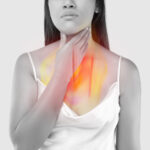
Benefits of Vitamin D in Health and Diseases
If your body has enough vitamin D it helps the growth and development of bones and teeth. It may also provide improved resistance to certain diseases. Vitamin D is a fat-soluble vitamin in a family of compounds that includes vitamins D1, D2, and D3.
Our body produces vitamin D naturally when it’s directly exposed to sunlight. We can also get vitamin D from certain foods and supplements to ensure adequate levels of the vitamin in our blood.
Vitamin D has several important functions. Perhaps the most vital are regulating the absorption of calcium and phosphorus and facilitating normal immune system function getting enough vitamin D is important for the typical growth and development of bones and teeth, as well as improved resistance to certain diseases.
- Vitamin D helps to fight the diseases
- Reducing the risk of multiple sclerosis (MS )
- Decreasing the chance of heart disease.Low vitamin D levels have been linked to an increased risk of heart diseases such as hypertension, heart failure, and stroke.
- Supporting immune health.People who do not have adequate vitamin D levels might be at increased risk of infections and autoimmune diseases, such as rheumatoid arthritis, type 1 diabetes, and inflammatory bowel disease.
- Vitamin D helps to regulate mood and reduce depression
Research has shown that vitamin D might play an important role in regulating mood and decreasing the risk of depression. A review of 7,534 people found that those experiencing negative emotions who received vitamin D supplements noticed an improvement in symptoms. Vitamin D supplementation may help people with depression who also have a vitamin D deficiency Another study identified low vitamin D levels as a risk factor for more severe fibromyalgia, anxiety and depression.
- Vitamin D helps to support weight loss
People with higher body weights have a greater chance of low vitamin D levels in one study, people with obesity who received vitamin D supplements in addition to following a weight loss diet plan lost more weight and fat mass than the members of the placebo group, who only followed the diet plan.
In an older study, people taking daily calcium and vitamin D supplements lost more weight than subjects taking a placebo supplement. The researchers suggest that the extra calcium and vitamin D may have had an appetite-suppressing effect.
Vitamin D deficiency
Symptoms of vitamin D deficiency
The symptoms of a vitamin D deficiency in adults may include
- tiredness, aches, and pains
- severe bone or muscle pain or weakness
- stress fractures, especially in your legs, pelvis, and hips
- Depression
- Weight gain
Risks of getting too much vitamin D
If you take excessive amounts of vitamin D supplements, you may get too much of it. However, this is unlikely to happen through diet or sun exposure because your body regulates the amount of vitamin D produced through sun exposure.
Vitamin D toxicity can lead to an increase in your blood calcium levels. This can result in a variety of health issues, such as
- nausea
- apathy
- vomiting
- dehydration
- confusion
- abdominal pain
- increased thirst
Some food sources of vitamin D
Some foods contain vitamin D naturally, and others are fortified with it. You can find vitamin D in the following foods
- sardines
- herring
- salmon
- canned tuna
- cod liver oil
- beef liver
- egg yolk
- regular mushrooms and those treated with ultraviolet light
- milk (fortified)
- certain cereals and oatmeal (fortified)
- yoghurt (fortified)
- orange juice (fortified)
It can be hard to get enough vitamin D each day through sun exposure and food alone, so taking vitamin D supplements could help.
Daily dietary doses
The Recommended Dietary Allowances for vitamin D are as follows
- infants (0–12 months): 10 mcg (400 IU)
- children and teens: 15 mcg (600 IU)
- adults ages 18–70: 15 mcg (600 IU)
- adults over age 70: 20 mcg (800 IU)
- pregnant or breastfeeding women: 15 mcg (600 IU)





